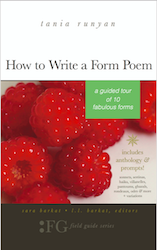Word Tools to the Rescue!
So you’re in the mood to write a poem. Feeling contented and inspired, you sit down next to the window and start to write out your thoughts, only to be stopped suddenly in your tracks by one of the worst roadblocks in existence—a terrible, looming wall perched most ill-manneredly in the middle of your poetry road… What Word Should I Use?!
The answer to this painful question might require an hour of banging your head against the table, after which, now saddled with a pounding headache and in no mood to write a poem, you retire to your bed to curse the invention of words, poems, and tables.
If this seems a fruitless endeavor, there is hope, and it lies within a dictionary. But not just any dictionary. No, in this enlightened day and age, you can choose a dictionary to fit your precise need. For example:
Are you writing a poem of rhyme
only to struggle to find at the time
that no rhyme will reveal
until you candidly feel
that if you had never begun to try
you might be happier?
If this is the case, you might need a rhyming dictionary.
1. Rhyming Dictionary
The RhymeZone Rhyming Dictionary can find any rhyme you wish. Just type in a word and hit enter, and it will bring up every word that rhymes with your word. It automatically sorts by syllable, so if you’re writing a form poem in which the length of your words is constrained, that can be very helpful.
You might notice there’s a dropdown list sitting on “Find Rhymes”, but if you click on it there’s a whole list of other fun things you can get the dictionary to do, from finding near-rhymes, synonyms, and antonyms, to finding poetry verses.
2: Reverse Dictionary
Have you ever thought to yourself, “I know exactly what word I want. I know exactly what it means… But I can’t remember the word!”
This is when you need OneLook Reverse Dictionary. All you have to do is describe the concept of the word in the search bar, and it brings up a whole list of possible words, including, hopefully, the one you’re searching for. (I’ve tried it a couple of times, and how well it works seems to vary).
You could also use it even if you don’t have a specific word in mind, but merely have a concept you want to write about and wish to be inspired.
3. Thesaurus
This, of course, is invaluable for any kind of writing, from poetry to fiction to writing articles about invaluable writing tools. If you know a synonym, type it into Thesaurus.com and find another, possibly more apt, word to adorn your compositions. Similar to a reverse dictionary in concept, it’s perfect for smaller, less desperate scenarios of something sitting on the tip of your tongue.
(Speaking of something on the tip of your tongue, Tip of My Tongue is built to find exactly that: a word of which you remember partially but not definitely.)
4. Dictionary
It shows the definition of a word, of course. Though less dramatic, that can still be of use when trying to discover if the word you’re thinking of means exactly what you thought it did. I know that the ordinary dictionary seems like a mundane suggestion, but I urge you to try it. Dictionaries can be very informative places.
5. Google
“What?” You say. “This isn’t a dictionary. This doesn’t have anything to do with word tools. You’re just trying to fill up the fifth slot so you can say ‘Five Invaluable Word Tools for Poets’ instead of ‘Four’ which doesn’t sound half as good!”
Well, yes, but also, no. Where do you think you find all these handy little sites, like RhymeZone or OneLook? Or what if you want to find a word whose meaning you know was originally from another language? Or what if you want to find the definition of a word in more than one dictionary? Furthermore, if you are focusing on a particular subject, as I did when writing a fairy tale poem that included a good deal of different flowers, what’s the fastest way to get layers and layers of information (in my case, spring flowers, fall flowers, winter flowers and then alternate names for commonly-named flowers)? Google can do all of that. With a little help from you.
So next time you’re at a loss,
in the middle of a poem that will not write
don’t be sad and don’t get cross
just search! And words will come to light.
Photo by Katelyn Kenderdine, Creative Commons license via Flickr. Post by Sara Barkat.
Browse more Poets & Writers Toolkit
Browse more Writing Tips
Learn how to Become a Better Writer
“How to Write a Poem is a classroom must-have.”
—Callie Feyen, English Teacher, Maryland
- Good News—It’s Okay to Write a Plot Without Conflict - December 8, 2022
- Can a Machine Write Better Than You?—5 Best (And Worst) AI Poem Generators - September 26, 2022
- What to Eat With Dracula: Paprika Hendl - May 17, 2022



Richard Maxson says
Sara, this is a welcome post. I am most grateful to you for telling me about the One Look Reverse Dictionary. Thank you! These word are like the holes I see around my house. I know something lives there, but I don’t know what and I can never see the creature come out.
Sara Barkat says
So distressing not to know what creature is in there 🙂 Good analogy for a word that just won’t come.
Elizabeth Marshall says
Tip Of My Tongue and other brilliant recommendations for these nagging poetry dilemas. I have a new lease on life, Sara, Brava, girl. You have inspired this poet to sit at her writing desk. Love your voice, btw…it is so Sara 🙂
Will Willingham says
I’ve *wished* for something like the reverse dictionary.
Never occurred to me to Google it…
*hangs head in investigative shame*
Sara Barkat says
I didn’t Google it either. It was on Tumblr with a link 😉
Bethany Rohde says
I will definitely be using the links in this helpful resource.
Hm… “helpful resource” sounds too dull for such a delightful post. Let’s see…
I’m bookmarking this stimulating treasury of word-wealth. 😉
Sara Barkat says
That’s funny. 🙂
Sandra Heska King says
Love this, Sara. I use OneLookDictionary a lot, so tend to also use it instead of going to the thesaurus because down at the bottom of a word search are words similar to that word. Plus I can also look up word origins on that site, too.
http://onelook.com
Sara Barkat says
Thanks, Sandra and Elizabeth. Whatever works for inspiration.
Diana Trautwein says
Great post, Sara. Some of these I knew about, some I did not. Always happy for more resources!
Dolly@Soulstops says
Thank you, Sara, for these helpful links and tips 🙂